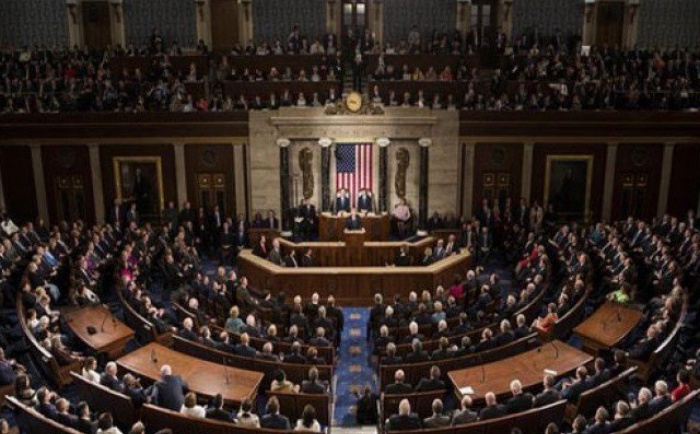The US Senate Committee on Foreign Relations on Thursday passed a bill restricting US loans to Turkey “until the Turkish government stops the arbitrary detention of U.S. citizens and embassy employees.”
The bill refers to US citizens including Andrew Brunson, a Christian pastor and long-term resident of Turkey who has become one of many points of friction straining bilateral relations since his arrest on terror charges in 2016.
“We never wanted this bill to be necessary, but we warned the Turkish government that there would be consequences if it did not cease its unjust detention and harassment of U.S. citizens and locally employed embassy staff,” chairman Senator Bob Corker said in a statement posted on the committee’s website.
The pastor was released to house arrest on Wednesday after almost two years in pretrial detention, but that did not prove enough to satisfy US President Donald Trump, who tweeted on Wednesday that Turkey would face “large sanctions” for their treatment of Brunson.
“The United States will impose large sanctions on Turkey for their long time detainment of Pastor Andrew Brunson, a great Christian, family man and wonderful human being. He is suffering greatly. This innocent man of faith should be released immediately!” Trump tweeted on Thursday morning,
Prosecutors accuse Brunson of activities on behalf of the terrorist Kurdistan Workers’ Party (PKK) as well as a group inspired by Turkish Islamic cleric Fethullah Gülen, accused by the Turkish government of orchestrating a failed coup in Turkey in 2016. The Gülen movement strongly denies any involvement in the abortive putsch.
“The Turkish government’s decision to move Pastor Brunson from prison to house arrest makes clear that the government has the agency to immediately, unconditionally release him,” said U.S. Senator Bob Menendez in the same statement.
“This week’s long overdue development in Pastor Brunson’s case is not enough – the United States also insists on the release of our locally employed staff, and an end to the harassment and targeting of U.S. citizens. We must continue to move forward with the Turkey International Financial Institutions Act until Turkey ceases the egregious policy of detention and harassment of U.S. citizens on specious grounds for political gain.”
The Turkey International Financial Institutions Act directs the US executive of the World Bank and the European Bank for Reconstruction and Development (EBRD) to oppose future loans, except for humanitarian purposes, to Turkey by the International Finance Corporation (IFC) and EBRD until the administration can certify to Congress that Turkey is “no longer arbitrarily detaining or denying freedom of movement to United States citizens (including dual citizens) or locally employed staff members of the United States mission to Turkey.”
Turkey relies heavily on loans from both the IFC and EBRD. In 2017, Turkey ranked second among all IFC recipients with $927 million in new long-term commitments. Turkey was the largest EBRD borrower in 2017, securing about $1.8 billion in new commitments.
The bill contains a waiver for loans to Turkey that are determined by the secretary of the US Treasury and submitted to the appropriate congressional committee “to support projects to diversify energy resources in Turkey and to lessen the dependence of Turkey on oil or gas from the Russian Federation or the Islamic Republic of Iran.”
The bills for sanctions against Turkey comes after months of bipartisan efforts by US senators and members of the House to toughen the response to Turkey’s imprisonment of Brunson and US citizens, as well as its purchase of a Russian S-400 missile defense system deemed incompatible with systems of NATO, of which Turkey is a member.
The bill must still be approved by both houses of Congress and signed by the president before becoming law.
(Turkish Minute with Ahval)
